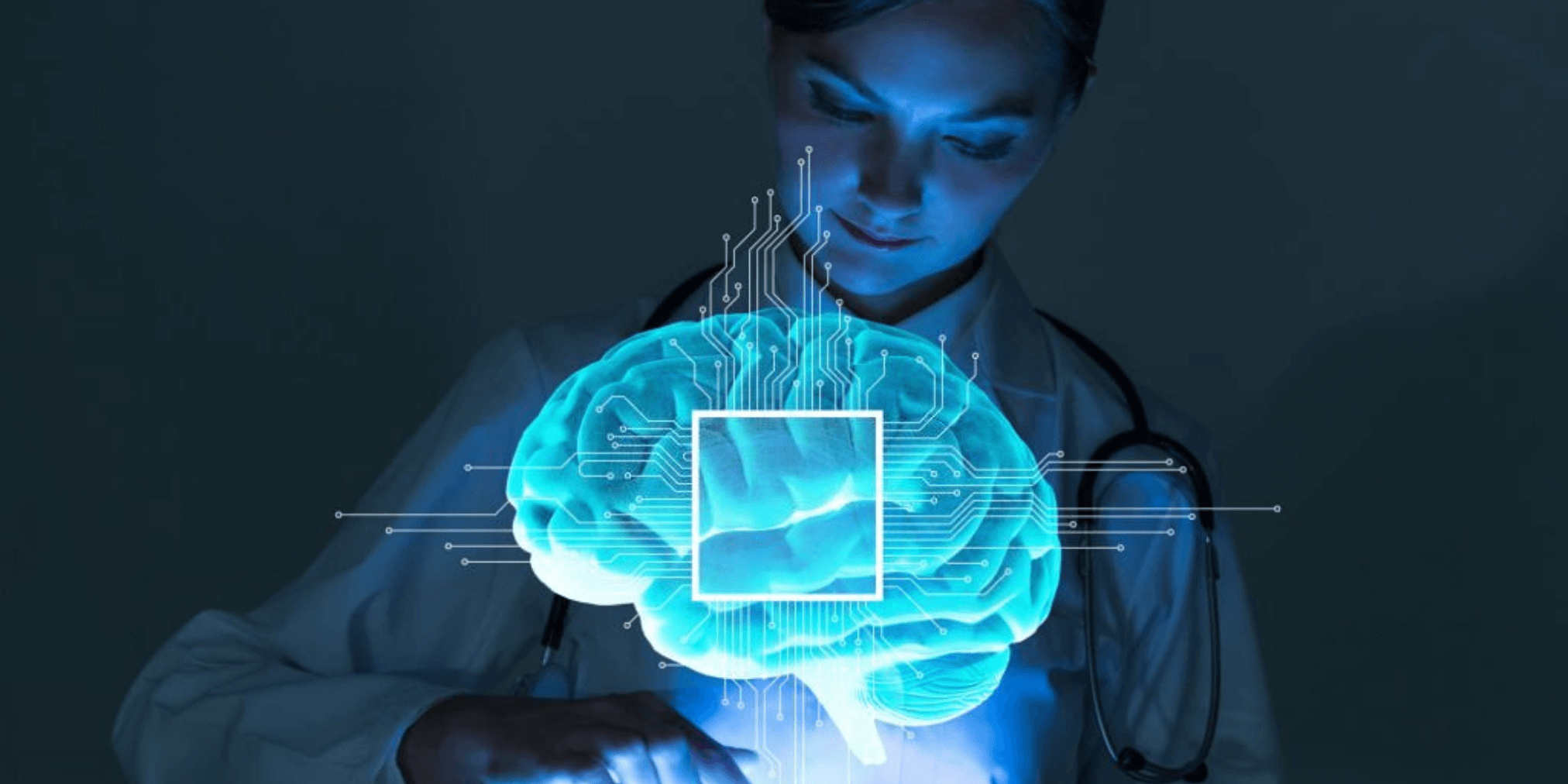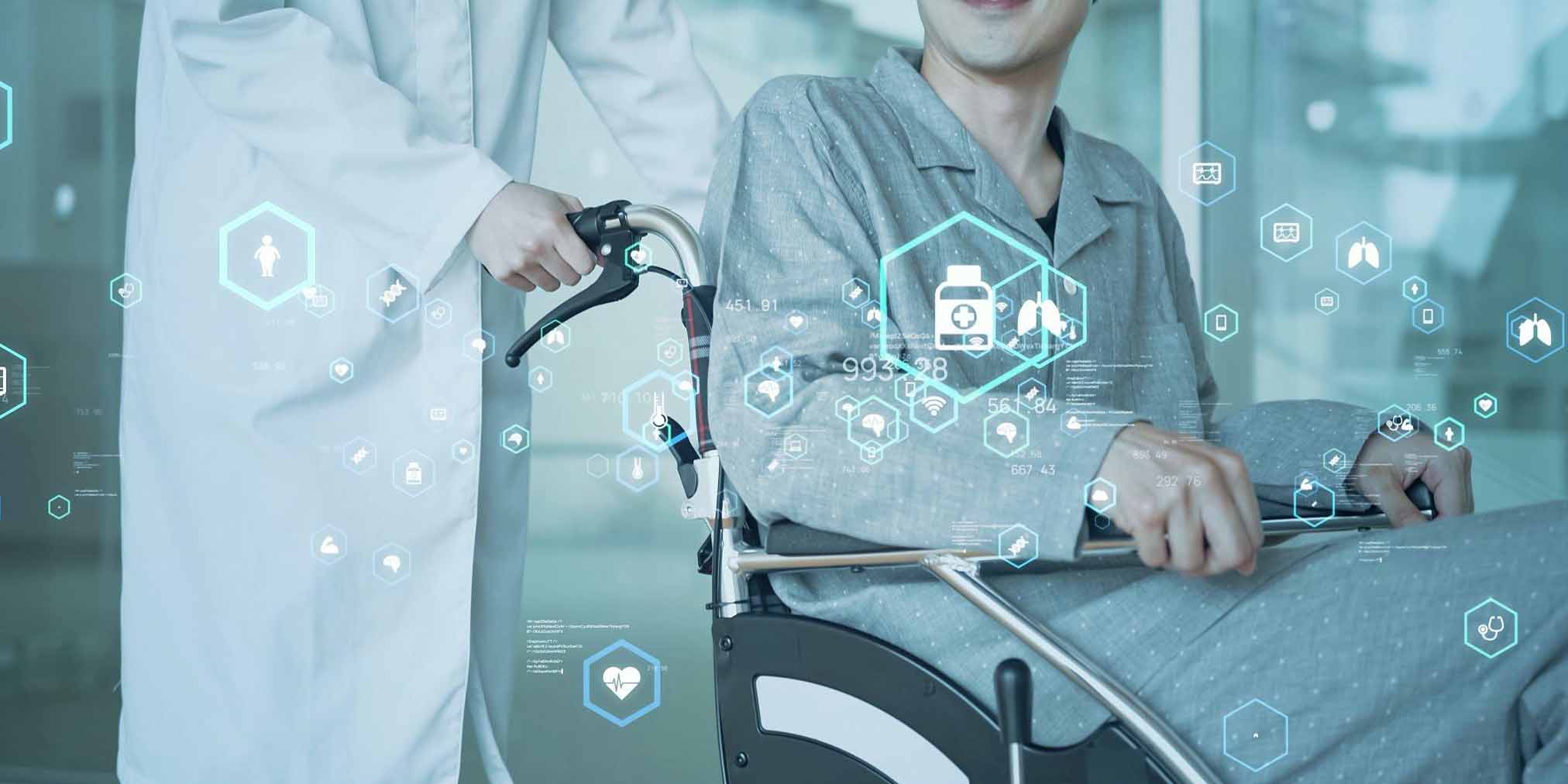

September 6, 2023
In recent years, Artificial Intelligence has taken the healthcare industry by storm. It is one of the fastest-growing industries in the world. The global market value of AI in Health Tech was approximately 11 billion U.S. dollars in 2021. Projections indicate that this market is set to soar, with an estimated worth of nearly 188 billion U.S. dollars by 2030. This represents a compound annual growth rate of 37%, expected to occur between 2023 and 2030.
AI-powered technologies are revolutionizing the way patient care is delivered. From using real-time predictive analytics to prescribe therapies to quickly identifying and diagnosing illnesses, AI is transforming the healthcare sector into a more responsive and personalized patient experience.
Clinical software solutions have become vital in hospitals, health systems, and medical labs worldwide. They analyze massive data sets and offers treatment and therapy suggestions.
This blog will explore how AI is powering innovative solutions for patient care with insights from some of today’s leading authorities on health tech. Stay tuned for even more revolutionary changes!
HealthTech is an umbrella term encompassing technology designed to improve the delivery of healthcare services. This can include a wide range of tools, such as:
AI in Health Tech serves a major role in the efficient management of healthcare systems. It improves methods of communication between patients, physicians, and other caregivers while streamlining administrative workflows.
The development of advanced health tech systems has driven rapid progress in medicine. Emerging technologies like artificial Intelligence play a major role in predicting diseases before the onset of symptoms. Ultimately, HealthTech is driving positive change in healthcare and helping to reduce costs while delivering efficient care.
AI is rapidly changing how healthcare providers interact with patients, improving the quality and efficiency of patient care. AI remotely monitors patients, delivering vital signs, medical records, and other data to doctors. In addition, AI automated capabilities mean that human errors in diagnosis are minimized, leading to more accurate treatment results.
AI also provides personalized treatments tailored to individual patients’ needs using data insights from previous cases. This aids precision medicine by tailoring targeted treatments and drug therapies to individuals’ unique biological profiles.
As a result, AI is revolutionizing patient care by:

AI technology provides significant value to patient care, and its applications are increasing exponentially in the medical field. AI can improve the accuracy of a diagnosis by having an unbiased assessment of composite data sets such as imaging diagnostics and genetic screens.
AI technologies allow for increased efficiency of nurse and doctor-to-patient ratios due to their ability to efficiently manage large numbers of data. This has implications for reducing healthcare costs while maintaining medical standards and outcomes.
AI’s potential continues to increase as it learns from patterns in patients’ responses and healthcare professionals’ interactions, ultimately creating successful outcomes
The potential of AI to enhance patient care is immense, and personalized medicine is at the forefront of this development. Personalized medicine uses an individual’s data, such as genetics and lifestyle habits, with advanced algorithms to create treatments tailored to each person specifically.
AI allows medical professionals to make more informed decisions on diagnosis and treatment plans that anticipate patient health needs in the future. This means people can access more comprehensive care based on their physiology rather than relying on a one-size-fits-all approach.
With personalized medicine, patients receive better outcomes and customized advice from their healthcare providers, changing the nature of patient care for the better.
AI is revolutionizing remote monitoring technology is one of the most exciting advancements. By utilizing AI-driven devices and wearables, people can receive attentiveness in managing their health without staying in a hospital environment. This gives patients greater access to their care providers and medical teams over time.
Through remote monitoring and AI, people can get plans tailored to their needs while at home or going about their day-to-day lives. AI is a powerful asset when looking for ways to optimize patient care.

Artificial Intelligence improves patient care by using predictive analytics to help healthcare providers make more informed decisions. Predictive analytics tools analyze vast amounts of data, such as electronic health records, lifestyle habits, and family history. They identify high-risk patients and predict potential health issues that may arise in the future. These tools enable proactive healthcare interventions and interventions for better patient outcomes.
AI in Health Tech allows targeted preventative measures to be taken before those issues become critical. AI technology is a game-changer in medical fields, saving time and resources while increasing efficiency and improving patient outcomes.
By automating time-consuming tasks like data entry, AI technology can be leveraged to create a smoother workflow, resulting in increased efficiency and accuracy. AI-powered applications have the potential to monitor patients in real-time and detect early signs of illness or disease, allowing medical professionals to intervene before a medical emergency arises.
It is clear that AI has already made great strides for improved patient care, and as it continues to develop, we can anticipate more groundbreaking developments in healthcare in the future.
The medical field is quickly adapting to the growing presence of AI. There are various ways in which artificial Intelligence can be utilized in the medical field, from helping to diagnose patients to automating many tedious tasks. AI-driven algorithms can process large amounts of data and offer better accuracy with the diagnosis than ever before.
With AI-assisted diagnosis, healthcare professionals have access to much more patient health information and a reliable tool for making decisions involving treatments and preventative measures.
The automation provided through artificial Intelligence helps streamline the healthcare process, reducing risks and errors while also reducing paperwork and workloads for personnel. As a result, patient services become more efficient and effective overall. AI promises great potential for the medical field as healthcare organizations continue to embrace this innovative technology.
AI is quickly becoming an integral part of the medical technology field. In particular, AI has increased the speed and accuracy of information gathering, allowing healthcare professionals to access patient records and health data. This has been incredibly beneficial for areas with limited resources and personnel, such as underserved communities where providing quality care can be difficult.
Furthermore, AI has made data analysis significantly easier and more efficient; healthcare practitioners can now rapidly process complex datasets to generate reports, anticipate trends and make decisions much more quickly than before. Undoubtedly, AI’s impact on the medical field will continue to evolve as technology advances.
The introduction of AI into healthcare has already changed the landscape of the medical field. Not only has it allowed for more accurate diagnoses, but it has also increased efficiency for healthcare professionals in their daily tasks.
AI helps free them from mundane paperwork, such as double-checking patient documents and organizing schedules, giving them more time to focus on providing professional care and support to their patients.
Applications such as DeepRadiology allow doctors to detect cancer with over 97% accuracy via image recognition technology, improving patient outcomes and making diagnoses faster than ever before without waiting for second opinions from specialists. AI is revolutionizing the healthcare industry by making processes more adaptive and efficient.

Artificial Intelligence can drastically improve patients’ quality of life. AI can help identify illnesses and diseases more quickly, enabling doctors to diagnose conditions and develop treatment plans earlier than ever before.
Additionally, AI-assisted imaging technology could help doctors spot signs of cancer earlier, giving the patient a greater chance of successful treatment and increased long-term survivability.
With AI’s predictive analytics capabilities, doctors can even anticipate possible health problems before they become a reality. This proactive approach can save people time, money, and stress in the long run by preventing unnecessary treatments or procedures that weren’t necessary in the first place.
By utilizing AI, medical professionals can personalize treatments for each patient so that no two cases or outcomes are identical. It is clear that AI has the power to revolutionize patient care and make diagnosis much more precise while freeing up physicians’ time so they can better support those in need.
AI has the potential to revolutionize healthcare and improve the overall experience of patients. Currently, AI is being used in medical fields by offering more tailored treatment plans, helping patients receive specialized care in a way that was never previously possible.
With AI’s ability to access vast amounts of data quickly and give personalized direction on what forms of treatment will be most effective for individuals, physicians can determine the optimal therapies for each patient based on individual underlying needs.
This leads to more efficient healthcare processes and better outcomes for patients. AI has the power not just to save lives but also to maximize the longevity, quality of life, and happiness of every single patient it interacts with.
AI has made the prospect of greater access to healthcare services a reality for patients around the globe. Medical practitioners can provide more comprehensive and timely diagnoses by using advanced AI technologies such as natural language processing, machine learning, and deep learning algorithms.
What’s more, AI technology enables practitioners and remote care services to open doors to multiple treatment options that may not have been accessible before. As a result, people in remote areas can seek assistance from providers who are otherwise geographically isolated or have heavily constrained time slots for consultations.
This increased access benefits hospitals and their patients; with improved healthcare delivery models, physicians can treat patients faster while patients gain higher quality treatment in less time.
The future of health tech and AI is a bright one. Healthcare providers increasingly use AI to revolutionize their care delivery models. A reliable healthcare software development company can provide efficient clinical software solutions. These solutions offer providers more efficient ways to diagnose and treat conditions while providing patients with improved access to quality care.
With the right strategies in place, HealthTech with AI can help healthcare professionals achieve better outcomes for their patients while setting a higher standard for patient care across all industries. In the years ahead, we can look forward to even greater successes as these technologies evolve and progress.